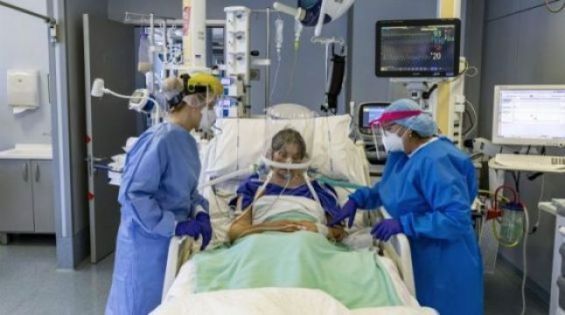In Morocco, as elsewhere, surviving Covid-19 can leave physical or psychological consequences in patients. Almost 8 months after the discovery of the first infection in the Kingdom, Moroccan experts are starting to formulate some observations related to the sequelae that some Covid-19 patients can experience even after recovery.
«We have to first define what we mean by 'sequelae', because it implies something that cannot be repaired. In medicine, we call it complication management and tertiary prevention and they are complications from a past situation that we cannot recover from», Professor Jaafar Heikel, epidemiologist and infectious diseases specialist told Yabiladi on Monday. The expert explains that these side effects that he observed when treating patients with Covid-19 are «transient and not definitive and have no serious impact».
Reversible «sequelae» that disappear over time
The first observation, noted in Moroccan patients, remains «extreme fatigue». «It persists for 4 to 6 weeks after recovery. Patients feel exhausted and tired, with stiff muscles», explains the medical practitioner. «In certain situations, these patients say that they feel 'empty', have pain in the joints and that they even feel unable to lift their arms», Heikel said adding that «extreme fatigability» is however «reversible, because it is a short or medium term consequence» which rarely lasts beyond 8 weeks.
The second observation remains the loss of taste (ageusia) and smell (anosmia). «In 85% of cases, patients recover taste and smell during treatment», recalls the expert, who notes that «15% of patients do not recover them until after a month or more».
Pr. Heikel also underlines that a persistence of oppression or a slight respiratory distress can also be observed in some patients.
«We call it persistent pulmonary fibrosis and that's what needs to get our attention.It is observed only in 5% of cases, but it must be monitored clinically by a CT scan at least six months following recovery».
On the other hand, Professor Abdelfattah Chakib, an infectious diseases specialist at the Ibn Rochd University Hospital in Casablanca said that data show that «fibrosis diminishes and then disappears over time».
He also cites the presence, in some patients, of «vascular disorders, such as embolisms (obstruction of an artery in the lungs by a blood clot, editor's note) or thromboses», recalling that these disorders are known and have been described in scientific literature.
Psychological sequelae and underlying illnesses
Heikel also insists on the «psychological sequelae» which can go unnoticed, although they affect many patients who have recovered from Covid-19. «They are quite important since they are present in a quarter of the cases that I have treated. Thus, 25% of cases believe that 'it is not as before', that they do not feel motivated as before, that the crisis has done a lot of harm to their families and themselves», recalls the physician. Sometimes it is the return to social life that becomes difficult.
The epidemiologist gives the example of a patient, «who lives in a building on the 5th floor, to whom the building manager has asked not to take the elevator anymore because she has tested positive for Covid-19 and psychologically, it's hard».
«These people stayed locked in their homes and did not accept the gaze of the others.There were also certain behaviors that were not correct on the part of neighbors.I advise these patients to consult psychologists or psychiatrists».
The practitioner finally underlines that there are patients who evoke cardiac, neurological or dermatological problems, but which «are not linked to Covid-19». «These problems are either linked to pathologies that existed before infection with SARS-CoV-2 or are linked to somatization», he explained.
Pr. Abdelfattah Chakib recalls, in this regard, that a «compensation for underlying diseases» can also be observed. But in general, the experts have not «noted significant after-effects on patients already hospitalized», stressed the expert, noting that a study on the subject is still underway.
«With a 6-month follow-up, I observed with my team that we have 94% of cases with recovery without reinfection and without serious consequences after treatment and recovery», Pr. Heikel assured.




 chargement...
chargement...












